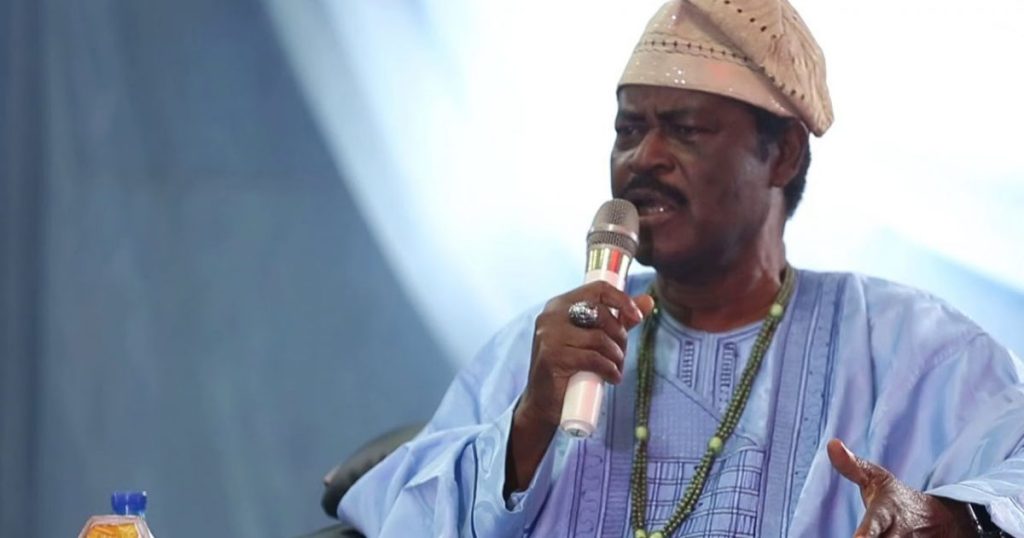Dr. Amos Akingba, a significant figure in both the National Democratic Coalition during Nigeria’s military regime and the Yoruba socio-cultural organization Afenifere, reflects on Nigeria’s governance and internal challenges in an interview with Ismaeel Uthman. He asserts that Nigeria has managed its affairs poorly since gaining independence 64 years ago. Akingba emphasizes that while the initial post-independence leaders endeavored to build a democratic framework, their inexperience led to political fractures that allowed military intervention. This shift resulted in detrimental governance, where military regimes, which were expected to maintain security, usurped civilian authority leading to a myriad of socioeconomic issues that have persisted and worsened over time.
Akingba critiques the current state of governance, indicating that Nigeria is regressing rather than progressing. He argues that despite possessing abundant resources, the leadership’s misuse of these has created a cycle of autocratic rule rather than true democratic governance. He points out glaring declines in education, healthcare, infrastructure, and electricity. According to Akingba, the historical and contemporary leadership—spanning from Tinubu to previous administrations—demonstrates ignorance of democratic principles. He argues that the current governmental structure, primarily characterized by a centralized system, severely undermines genuine autonomy and accountability at the state and local government levels, which are critical in a diverse, multi-ethnic society.
When asked about the Western influence on Nigeria’s political struggles, Akingba asserts that foreign powers have far too much sway in the country’s leadership selection process. He argues that external powers broker alliances and support leadership figures unable to appropriately govern, further complicating Nigeria’s self-governance issues. He underscores the need for Nigerians to take responsibility for their choices and leaders, suggesting that indigenous efforts must guide the country toward a more effective and self-determined governance model to break free from this cycle of internal and external manipulation.
Addressing the nature of democracy in Nigeria, Akingba posits that the country merely claims to be democratic without fulfilling the core tenets of democratic governance, such as local autonomy and accountable local governments. He asserts that Nigeria’s governance resembles “militarocracy,” where military rule has long overshadowed civilian leadership, eroding genuine democratic practices. Akingba believes that moving towards decentralization and regional governance could empower local cultures and communities to address their unique issues effectively and echoing a sentiment expressed by many advocates for restructuring Nigeria’s governance back to the regional model similar to pre-1966 arrangements.
Although he recognizes that a true federal system requires foundational amendments to cater to Nigeria’s contemporary complexities, Akingba is sceptical about President Tinubu’s commitment to federalism. He expresses doubts regarding who truly holds power in the current administration, surmising that pre-existing elites, particularly among the Fulani and military factions, still wield significant influence over governance priorities. He warns that ignoring the diverse ethnic identities and autonomy needs of Nigeria’s populace could exacerbate existing tensions and lead to further instability. Additionally, Akingba voices his regrets about the stagnancy in achieving NADECO’s goals over the past three decades, attributing ongoing socio-economic issues to systemic corruption and the failure of political institutions to function in favor of the populace.
Finally, Akingba critiques the current political landscape, stating that without structural reforms and a more significant focus on accountability and local governance, Nigeria is likely to remain in a crisis. He advocates for reviewing previous constitutional frameworks and the establishment of a new, functional constitution that reflects the needs and identities of Nigeria’s diverse ethnic groups. In light of the Supreme Court’s recent ruling regarding local government autonomy, he calls for practical changes that align with the principles of federalism to ensure that local governments can operate effectively while still respecting the broader responsibilities of the Federal Government. Akingba concludes by emphasizing that unless serious reforms are enacted to address these shortcomings, Nigeria will continue to struggle with governance, integrity, and progression into the future.














